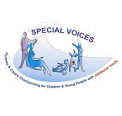Personal budgets and direct payments (parents, carers - SEND)

What are personal budgets
A personal budget is defined by the 0-25 SEND Code of Practice as an amount of money that has been identified by the Local Authority to deliver some or all of the provision set out in an Education, Health, and Care (EHC) Plan in order for the child or young person to achieve an agreed set of educational outcomes.
A personal budget can be from:
- education, health or social care or
- a combination of funding across these areas.
Families can ask for or request a personal budget at the point when an EHC Plan:
- is drawn up or
- an annual review takes place.
The policy makes clear:
- which elements of Education, Social Care and Health funding is part of the personal budget
- how the personal budget funding will be made available.
What are direct payments
Where appropriate, Slough Children First and Slough Adult Social Care can arrange for direct payments to help with care.
Direct payments are one of the ways in which we can pay for someone’s support needs.
It:
- is money we give to young people age 16 years or over with a disability or their parents or carers to purchase support, which is identified as an assessed need
- gives you greater choice and control over the support the young person receives and how it’s provided
- can be used to buy support we would usually provide through our own services
- do not affect benefits
- is possible to have a third-party arrangement to manage a direct payment.
Find details on Direct payments on Slough Borough Council website.
Difference between personal budget and direct payment
A personal budget shows you what money there is for the provision specified in an Education Health Care (EHC) plan, and who provides it. The parent or young person does not actually manage the funds directly.
With a direct payment the parent or young person is given the money for some services and manages the funds themselves. The parent or young person is responsible for buying the service and paying for it.
A personal budget can include a direct payment if it is agreed that this is the best way to manage part of the personal budget.
Key points about personal budgets and direct payments
- Direct payments can be used for special educational provision in a school or college only if the school or college agree.
- Local authorities can refuse a direct payment for special educational provision if it would make things worse for other children and young people with an EHC plan, or if it would be an inefficient way to pay for services.
- Personal budgets for educational provision cannot cover payment for a place at a school or college.
- Personal budgets can only be used to fund the support set out in an EHC plan. This must be agreed by the local authority for education and care support, and by the health authority for the health provision.
Who can have a personal budget
- If you are the parents of a child with an EHC plan, or a young person with an EHC plan, you can request a personal budget either during the drafting of an EHC plan or at a review once the plan has been issued.
- A young person with an EHC plan can ask for their own personal budget after the end of the school year in which they become sixteen. There is a right to request a personal budget (in education) but not a right to have a personal budget.
- You do not need to have an EHC plan to get personal budgets for social and health care, but once you have an EHC plan, or one is being prepared, you can request budgets for all three areas of support.
- You must have an EHC plan to get a personal budget for special educational provision. However, you do not have to have a personal budget.
What can a personal budget be used for
Personal budgets can only be used to fund the support set out in an EHC plan. This must be agreed by the local authority for education and care support, and by the health authority for the health provision.
The EHC plan will then set out how a personal budget is going to deliver support and outcomes. While there is a degree of flexibility in how personal budgets can be used you must be able to demonstrate that your child’s assessed needs would be met and that it contributes to the outcomes in the education, health and care plan.
A personal budget will use any top up funding (known as element 3 funding). It can also include support that is managed by the school or college – but only if the Head teacher or Principal agree.
But a personal budget for educational provision cannot cover payment for a place at a school or college.
Some ways in which a personal budget could be used might include:
- additional tuition in a particular area such as literacy or maths (only where the child is under 16)
- an iPad for a child which is focussed on improving communication skill
- teaching assistant support hours in schools
- therapies (speech and language / occupational therapy / physiotherapy)
- home to school transport
- continuing healthcare
- short breaks (only direct payments can be used to employ a personal assistant).
Sometimes the local authority or the health authority may not agree to a personal budget. If the local authority refuses a personal budget for special educational provision, they must tell you why.
You cannot appeal to the Special Educational Needs and Disability Tribunal over this refusal but could use the disagreement resolution process.





